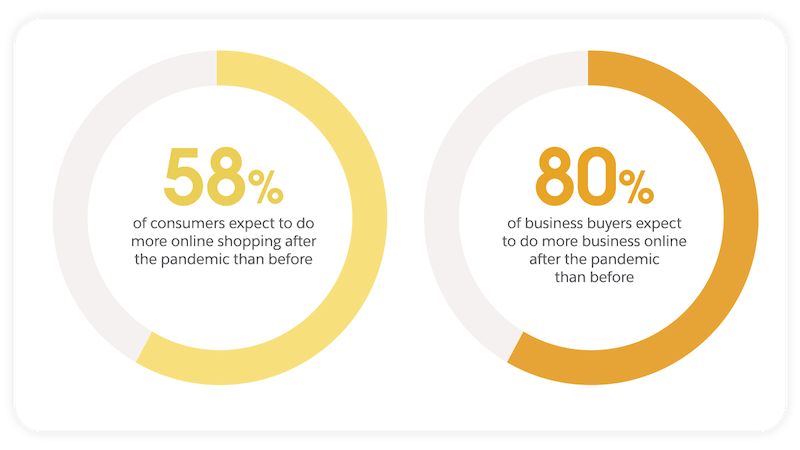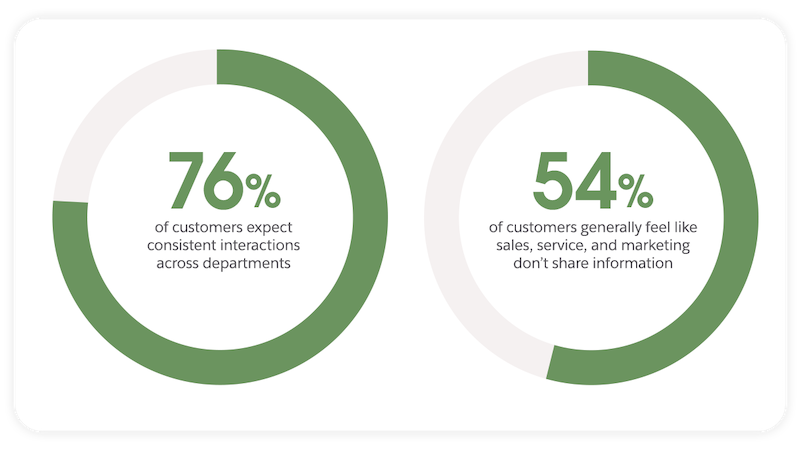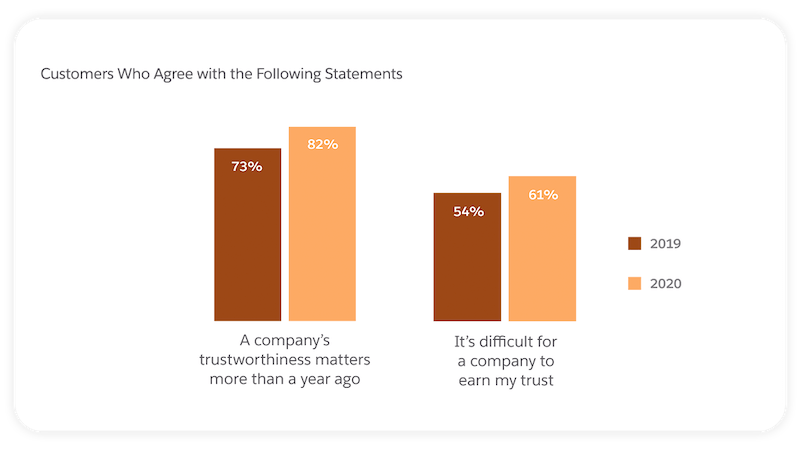Today Salesforce published the fourth edition of its State of the Connected Customer research report, an annual study of how customer expectations and behaviors are changing as businesses, technology and society at large evolve. This year’s survey was our largest and most global yet, soliciting over 15,000 responses across 27 countries and six continents.
The report provides a snapshot of how customer engagement is transforming with unprecedented scale and speed against the backdrop of simultaneous public health, economic, social, environmental and leadership crises.
“Regardless of who they market, sell or provide services to, businesses are navigating a landscape they couldn’t have imagined at the beginning of this year,” said Vala Afshar, Chief Digital Evangelist at Salesforce. “A massive shift to digital channels isn’t the only challenge that leaders have to grapple with. They also need to listen and respond to customer demands for empathy and understanding, innovative products and services, and a fundamental rethinking of the role of businesses in society. Connecting customers’ various touch points — digital, human or otherwise—to gain a holistic understanding is the first step on the path to resiliency and growth.”
Key insights from the State of the Connected Customer report include:
Digital transformation has hit an inflection point
The shift in activity from stores and offices to ecommerce and virtual collaboration may be viewed as temporary. However, there is evidence that the pandemic has accelerated a long-term trend towards truly digital-first lifestyles.
Digital engagement hit a tipping point this year, overtaking in-person interactions as the dominant way customers do business. Additionally, customers expect their shopping, meetings and customer service interactions to lean digital in 2021.
Editor’s Note: The graphic above is interactive and allows you to filter views.
Companies have the mandate — and opportunity — to expedite any digital transformations that were planned or underway before the pandemic.
88% of customers expect companies to accelerate digital initiatives due to the pandemic
Customer experience remains the key competitive differentiator, but standards rise
Eighty percent of customers say the experience a company provides is as important as its products or services. But what constitutes a great experience is being redefined as lifestyles change radically.
Data from the report also shows that creating a unified experience across different departments, like sales, marketing and service, can help a company adapt and cater to a customer’s individual needs and goes a long way in fostering a superior experience. Yet, according to customers, most companies are falling short of these expectations.
In a time of social distancing and restrictions on public life, convenience is even more of a priority. Nearly 7 in 10 customers prioritize convenience over brand, and 83 percent say they have come to expect flexible shipping and fulfillment options such as curbside pickup or buy-online-pick-up-in-store.
69% of customers say convenience is more important than brand
Trust is an increasingly scarce and critical commodity
Previous research established the importance of transparency and demonstrated value for earning customer trust, particularly in the context of personal data. This importance remains, as does the trust gap that has been apparent for years. Only 27 percent of consumers completely understand how companies are using their personal information.
However, the rise of contact tracing presents a high profile use case in transparent, beneficial applications of personal data that companies can emulate in the pursuit of personalization. In fact, 71 percent of customers expect the pandemic to shift how they think about their personal information.
Of course, in 2020, the trust of a weary customer base is impacted by more than personal data. The share of customers who place more importance on their trust in companies than last year, as well as those who say it is difficult for companies to earn that trust, has risen significantly.
Crises are prompting calls for all-encompassing business transformation
The role of values in paths to purchase is not new, but as acute and long simmering crises are cast into the public discussion, customers are putting more stock in brand values when deciding whether or not to make a purchase.
56% of customers have reevaluated the societal role of companies this year
In typical fashion, millennial and Gen Z customers are leading the calls for companies to improve their social, environmental and economic practices, but a striking share of all generations now consider these items as a draw to — or repellent from — brands.
Editor’s Note: The graphic above is interactive and allows you to filter views.
Industries get mixed marks on their performance
Sixty-two percent of customers say their experiences with one industry influence their expectations of others, underscoring the importance for businesses to look beyond their immediate competition for best and worst practices.
In a year when public health is top of mind, customers give the healthcare industry top marks for its response to current events as well as customer centricity, whereas technology and automotive companies get a particular nod for their innovation.
Methodology
Data in the State of the Connected Customer report is from a double-blind study of 12,000 consumers and 3,600 business buyers across North America, South America, Europe, Africa, and Asia Pacific. Data was collected between July 16 and August 18, 2020. All respondents are third-party panelists.
For further detail, see the State of the Connected Customer report.


















